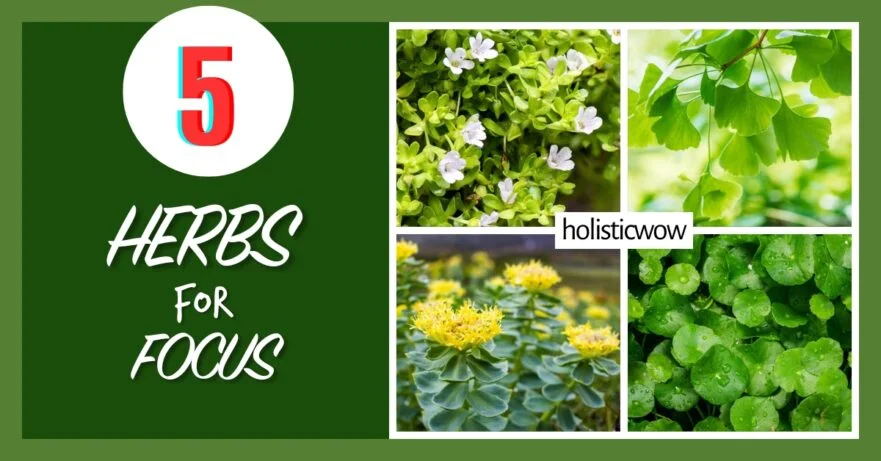Difficulty concentrating, forgetfulness, and mental sluggishness can significantly impact daily life. These symptoms of reduced mental clarity affect work performance, learning ability, and overall productivity. Stress, lack of sleep, and poor nutrition often contribute to these cognitive issues.
Certain herbs may offer potential benefits for supporting mental clarity and focus. Herbs like Brahmi, ginkgo, and rhodiola have shown promise in improving memory, concentration, and mental performance. These natural remedies might help combat brain fog and support cognitive function.
Understanding how these herbs work and how to use them safely is crucial. The following sections will explore each herb’s benefits, proper usage, and potential side effects to help you make informed decisions about incorporating them into your routine.
Key Takeaways
- 🌿 Potent Herbal Options: Brahmi, ginkgo, and rhodiola may show promise in enhancing memory, concentration, and mental performance.
- 🧠 Natural Cognitive Support: These herbs might improve brain function by increasing blood flow, protecting neurons, and balancing neurotransmitters.
- 🍵 Customizable Herbal Blends: Herbal tea recipes combine multiple herbs to target specific cognitive needs like clarity, memory, and focus.
- ⚖️ Holistic Approach Recommended: Combine herb use with a healthy diet, regular exercise, and stress reduction techniques for optimal cognitive benefits.
🌿 Best Herbs for Focus and Mental Clarity
Mental clarity issues can significantly impact our daily lives, affecting productivity and overall well-being. Nature offers a range of herbs, including brahmi (Bacopa monnieri), ginkgo (Ginkgo biloba), rhodiola (Rhodiola rosea), gotu kola (Centella asiatica), sage (Salvia officinalis), and rosemary (Rosmarinus officinalis), that have been traditionally used and studied for their potential to enhance cognitive function and mental focus.
Mental fog or lack of clarity often manifests as difficulty concentrating, forgetfulness, and reduced mental sharpness. These symptoms can affect work performance, learning ability, and daily tasks. Many people experience periods of mental fatigue, especially during stress or after prolonged mental exertion.
Common signs of reduced mental clarity include trouble staying focused on tasks, difficulty recalling information, slower mental processing, and a general feeling of mental sluggishness. These issues can lead to decreased productivity and may impact overall quality of life.
Various factors can contribute to mental fog, including stress, lack of sleep, poor nutrition, and certain medical conditions. In some cases, age-related cognitive changes may also play a role. By recognizing these symptoms and understanding their potential causes, you can take steps to improve focus and mental clarity through potential natural remedies like herbs and lifestyle modifications.
Brahmi (Bacopa monnieri)
Brahmi (Bacopa monnieri) is a herb used in Ayurvedic medicine for centuries to support cognitive function and memory. Traditionally, it has been used to treat anxiety, improve concentration, and enhance overall brain health. Modern research provides support for many of these uses. Brahmi contains bacosides, compounds that may improve cognitive function by enhancing nerve signal transmission and increasing brain chemicals involved in learning and memory, such as acetylcholine. Studies indicate that Brahmi may help with the retention of newly acquired information , particularly in older adults, by reducing the amount of information lost from memory [1]. Additionally, it may help reduce anxiety and stress levels [2]. While these findings are promising, more studies are needed to establish the full extent of Brahmi’s cognitive benefits.
Ginkgo (Ginkgo biloba)
Ginkgo (Ginkgo biloba) is one of the oldest living tree species and has been used in traditional Chinese medicine for thousands of years. It is commonly utilized for improving memory and treating blood disorders. Ginkgo contains antioxidants like flavonoids and terpenoids that may help protect brain cells from oxidative damage. It appears to improve blood flow to the brain and may act as a neuroprotective agent. Some studies suggest ginkgo may enhance memory and cognitive function, particularly in those with cognitive impairment. While promising for age-related cognitive decline, its effectiveness in treating dementia remains mixed [3]. Ginkgo’s potential benefits could boost mental clarity, focus, and memory. However, it’s important to use it carefully, especially if you’re on blood thinners, due to possible interactions [4].
Rhodiola (Rhodiola rosea)
Rhodiola (Rhodiola rosea) is an herb that grows in cold, mountainous regions of Europe and Asia. It has been used for centuries in traditional medicine to combat fatigue and enhance mental performance. This herb is classified as an adaptogen, meaning it helps the body adapt to stress. Rhodiola contains compounds like rosavin and salidroside that may help balance neurotransmitters, reduce mental fatigue, and improve concentration, especially under stress. It also shows potential to enhance mental performance, reduce burnout, and improve mood. However, more large-scale, long-term studies are needed to confirm its efficacy and safety [5]. The potential anti-fatigue and stress-protective effects of Rhodiola can contribute to better cognitive function, mental stamina, and resilience in high-pressure work or academic environments.
Gotu kola (Centella asiatica)
Gotu kola (Centella asiatica) has been used in Ayurvedic and traditional Chinese medicine for thousands of years, primarily to enhance mental clarity, memory, and cognitive function. Modern research supports some of these traditional uses. Gotu kola contains triterpenoids, which may have neuroprotective and cognitive-enhancing effects. Studies suggest it can improve memory, reduce anxiety, and enhance mood [6]. There is also evidence it may improve brain circulation and support brain cell growth, contributing to cognitive benefits [7]. Regular use of Gotu kola may support mental clarity, focus, and memory, with evidence suggesting benefits in memory and cognitive function, particularly in contexts of stress or cognitive impairment. As with any herb, appropriate dosing is crucial to avoid potential side effects.
Rosemary (Rosmarinus officinalis)
Rosemary (Rosmarinus officinalis) has been used for centuries in traditional medicine and cooking, with a recognized history of applications for improving memory and concentration. Modern research supports some of these traditional uses. Rosemary contains compounds like rosmarinic acid and carnosic acid that exhibit antioxidant and anti-inflammatory effects in the brain. Studies suggest that even the aroma of rosemary can improve cognitive performance, particularly in the accuracy of memory tasks, though it may slow down the speed of memory recall [8]. Rosemary may enhance memory, particularly in older adults, with some evidence suggesting benefits at low doses. While these findings are promising, more long-term studies are needed to confirm rosemary’s potential role in protecting against cognitive decline associated with aging [9].
📜 Herbal Preparations and Recipes for Mental Clarity and Focus
These herbal tea blends are designed to enhance mental clarity, improve focus, and support cognitive function. Each recipe combines specific herbs with evidence suggesting potential brain-boosting properties. Start with the milder blends and progress to the more potent ones as needed.
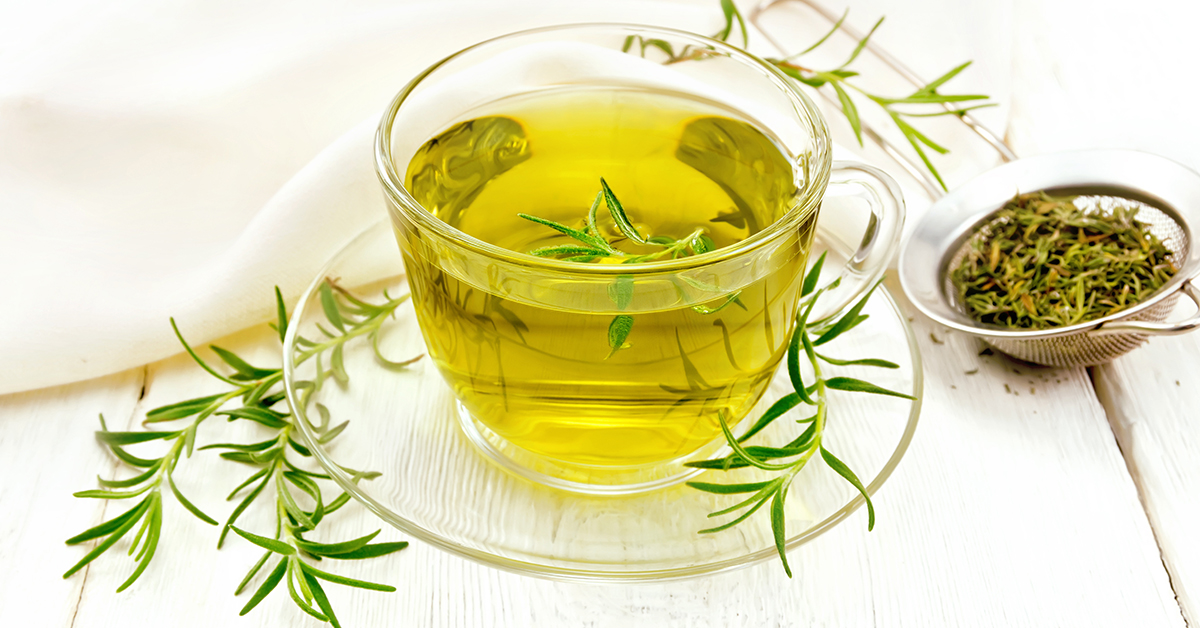
Clarity Boost Tea
Ingredients:
- 1 teaspoon dried gotu kola
- ½ teaspoon dried ginkgo leaves
- ½ teaspoon dried rosemary
- 1 cup of boiling water
Preparation:
- Mix herbs in a teapot. Pour boiling water over the herbs and steep for 10 minutes.
- Strain and drink once daily, preferably in the morning, to support mental clarity and focus.
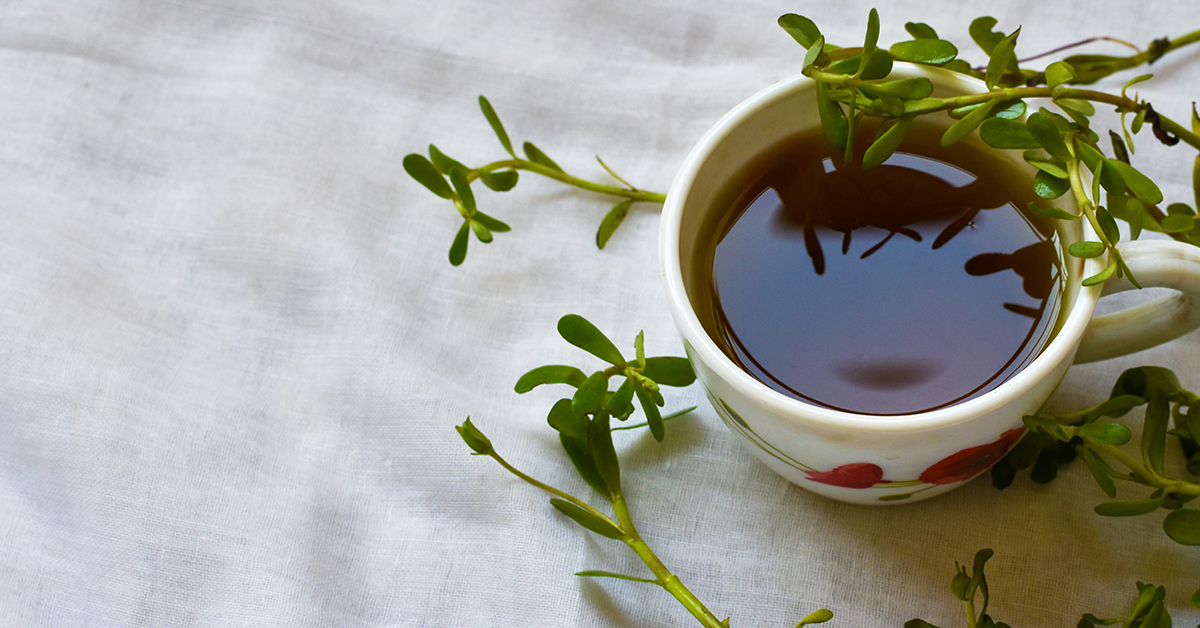
Memory Support Blend
Ingredients:
- 1 teaspoon dried Brahmi
- ½ teaspoon dried ginkgo leaves
- ½ teaspoon dried rosemary
- 1 cup of boiling water
Preparation:
- Combine herbs in a teapot.
- Add boiling water and steep for 15 minutes.
- Strain and drink once daily in the afternoon to support memory and cognitive function.
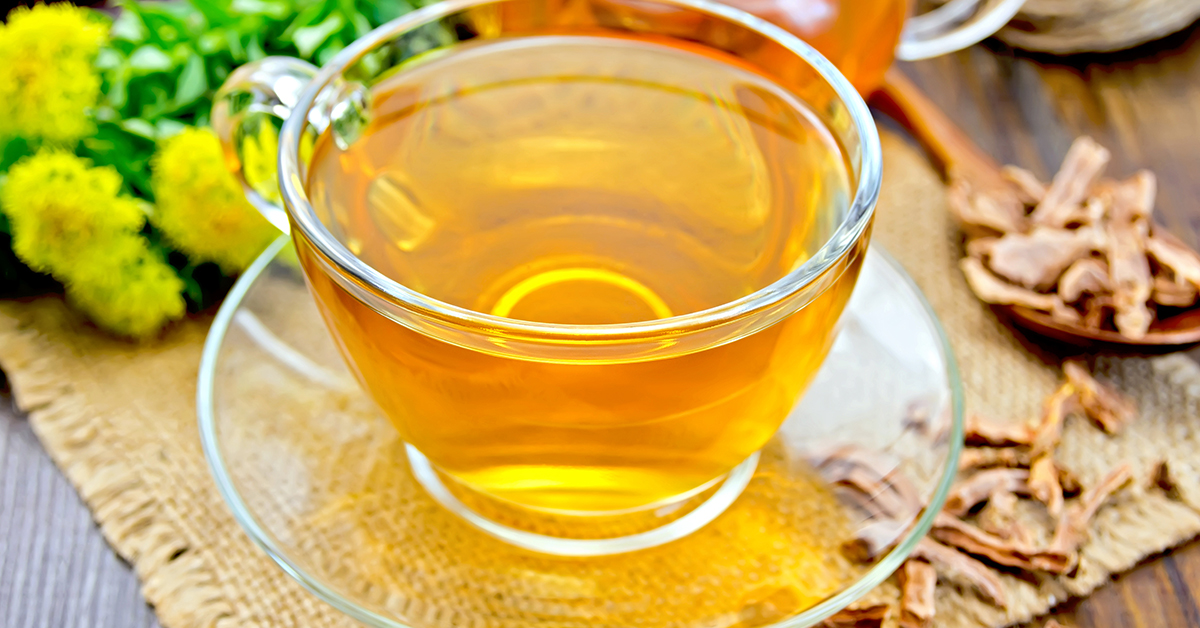
Focus Enhancement Tea
Ingredients:
- 1 teaspoon dried gotu kola
- ½ teaspoon dried Rhodiola root
- ½ teaspoon dried ginkgo leaves
- 1 cup of boiling water
Preparation:
- Place herbs in a teapot, add boiling water, and steep for 10-12 minutes.
- Strain and drink once daily, preferably mid-morning, to potentially improve concentration and mental stamina.
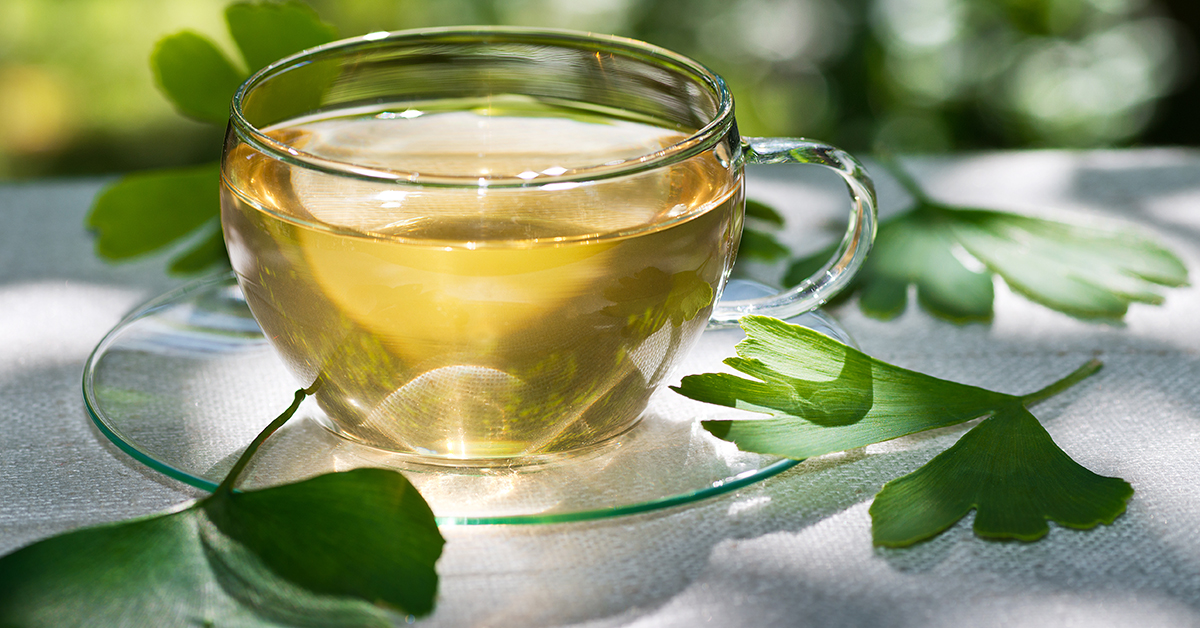
Cognitive Power Infusion
Ingredients:
- 1 teaspoon dried Brahmi
- ½ teaspoon dried ginkgo leaves
- ½ teaspoon dried Rhodiola root
- ½ teaspoon dried rosemary
- 1 cup of boiling water
Preparation:
- Mix all herbs in a teapot. Pour boiling water over the herbs and steep for 15 minutes.
- Strain and drink once daily in the morning to support overall cognitive function and mental clarity.
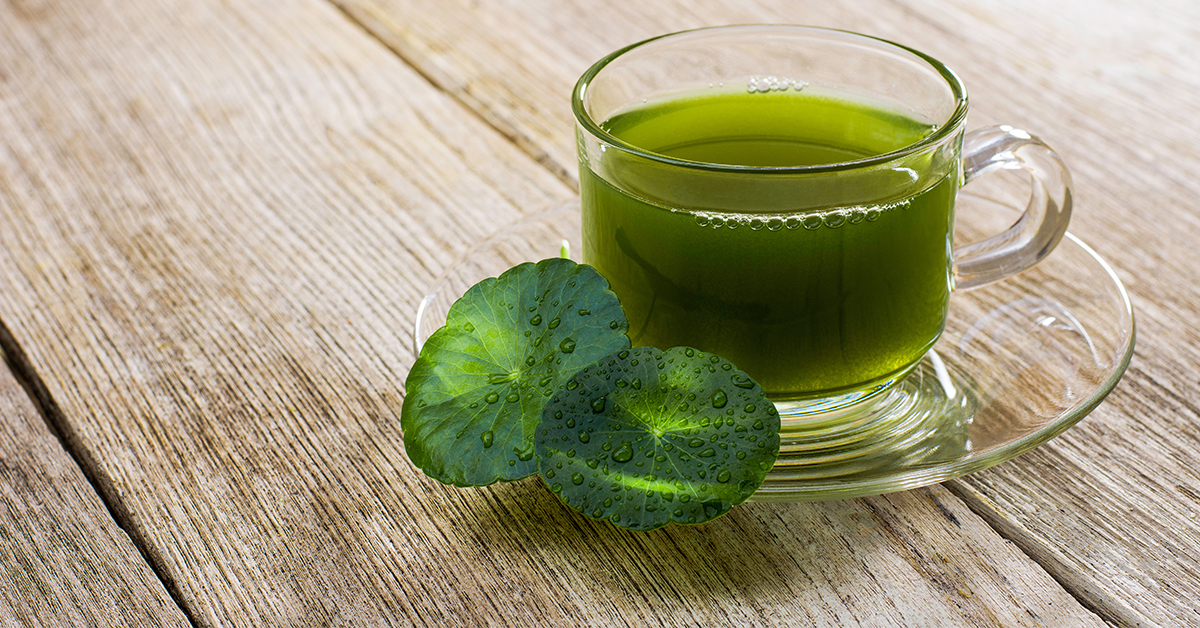
Brain Fog Buster Blend
Ingredients:
- 1 teaspoon dried gotu kola
- 1 teaspoon dried Brahmi
- ½ teaspoon dried ginkgo leaves
- ½ teaspoon dried Rhodiola root
- 1 cup of boiling water
Preparation:
- Combine all herbs in a teapot.
- Add boiling water and steep for 15-20 minutes.
- Strain and drink once daily, preferably in the morning or early afternoon, to potentially combat brain fog and enhance mental sharpness.
These tea blends are formulated to be easily incorporated into daily routines, offering a natural approach to improving mental clarity and focus. Adjust the blends according to personal taste and effectiveness. Always consult a healthcare provider before starting any new herbal regimen, especially if you have existing health conditions or are taking medications.
☯️ Integrating Herbs into Daily Life for Mental Clarity and Focus
Incorporating herbs into your daily routine can potentially enhance mental clarity and cognitive function. Here are practical tips for using herbs effectively and complementary practices to maximize their benefits.
Daily Use and Lifestyle Integration
- 🫖 Morning Routine: Start your day with a cup of tea containing Brahmi or ginkgo. These herbs may support cognitive function and memory, although results can vary based on individual response and the specific formulation. Alternatively, consider taking Brahmi or ginkgo supplements in capsule form if you prefer not to drink herbal teas. These can be easily incorporated into your daily supplement regimen.
- 🌿 Sustained Focus: For focus throughout the day, keep a thermos of tea with Rhodiola or gotu kola at your desk. These adaptogenic herbs might help reduce mental fatigue and improve concentration, especially under stress. You can also add dried rosemary to your water bottle for gentle cognitive support throughout the day.
Additional Practices to Support Cognitive Function
- 🥦 Brain-Boosting Foods: Incorporate foods that support brain health, such as blueberries, fatty fish, and dark leafy greens. These foods complement the potential effects of herbal treatments on cognitive function.
- 🏃♀️ Exercise: Regular physical activity, especially aerobic exercises like brisk walking or cycling, can improve blood flow to the brain, supporting cognitive performance.
- 🧘♀️ Stress Reduction: Practice stress-reduction techniques such as mindfulness meditation or deep breathing exercises. These practices can help improve focus and overall mental well-being.
- 😴 Sleep: Adequate sleep is crucial for cognitive function. Consider a cup of chamomile tea about an hour before sleep to promote relaxation and improve sleep quality.
- 🧩 Mental Stimulation: Engage in mentally stimulating activities like puzzles, learning a new language, or playing a musical instrument. Combined with herbal support, these activities can enhance overall cognitive function. Aromatherapy with rosemary essential oil may provide a temporary boost in alertness and memory.
When using herbs for cognitive support, start with smaller doses to assess your body’s response and gradually increase as needed. Consistency is key for optimal results, but given the limited long-term safety data on many herbs, periodic breaks are advisable to avoid potential side effects. Integrating these herbs into your daily routine can help manage cognitive issues and promote overall mental health. If you have existing health conditions or are taking medications, consult a healthcare provider before starting any new herbal regimen.
🌱 Navigating Herbs Safely
Starting with small doses is the first step when adding herbal remedies to your health routine. This approach lets you see how you respond and adjust amounts for the best effect, keeping safety in mind. While many herbs are safe, everyone’s body reacts differently. If you notice any side effects, it’s important to stop and think about what might be causing them.
Remember, herbs can sometimes interact with prescription medicines. These interactions might make your medicines work too well or not well enough, which is why talking to a healthcare provider or an herbalist is essential. This is especially crucial if you’re pregnant, breastfeeding, taking medications regularly, or have an existing health condition. Getting advice tailored to your situation can help you avoid any unnecessary risks.
For kids and older adults, being extra careful with herbs is important. Their bodies might react more strongly to herbal remedies, and the chance of side effects or interactions could be greater. Before giving herbal treatments to children or elderly family members, getting advice from a professional is a must to ensure their safety.
By being cautious and seeking expert advice when needed, you can make herbal remedies a safe part of your wellness plan. This careful approach allows you to enjoy the benefits of herbs while keeping yourself and your family safe.
Herbs such as brahmi, ginkgo, rhodiola, gotu kola, sage, and rosemary have been traditionally used to improve memory, concentration, and overall cognitive performance.
These herbs may support brain health through various mechanisms, such as improving blood flow to the brain, protecting against oxidative stress, and balancing neurotransmitters. There are also many practical ways to incorporate these herbs into daily routines, such as drinking herbal teas or taking supplements. Research is needed to establish their efficacy and long-term safety fully.
Complementary practices and a holistic approach can support cognitive function, such as maintaining a healthy diet, engaging in regular physical activity, and practicing stress-reduction techniques.
FAQ
How long does it take to see results from using herbs for mental clarity?
The time it takes to experience benefits from herbs for mental clarity can vary depending on the individual and the specific herb used. Generally, you may start noticing subtle improvements in focus and mental sharpness within a few weeks of consistent use. For example, with Brahmi (Bacopa monnieri), studies have shown cognitive improvements after 4-6 weeks of regular supplementation. Ginkgo (Ginkgo biloba) may begin to show effects within 4-8 weeks, particularly in older adults or those with mild cognitive impairment. However, it's often recommended to use these herbs consistently for at least 8-12 weeks for optimal results. Herbs work gradually and cumulatively, so patience and consistency are essential. Individual responses can vary based on factors like overall health, diet, and lifestyle. If you don't notice improvements after several weeks of use, it's important to consult a healthcare provider to discuss your situation and explore other options.
Are there any potential side effects or interactions I should know when using herbs for mental clarity?
While herbs for mental clarity are generally considered safe for most people, they can have potential side effects and interactions. For instance, ginkgo (Ginkgo biloba) may increase the risk of bleeding, particularly if you're taking blood-thinning medications. Rhodiola (Rhodiola rosea) can sometimes cause insomnia or irritability if taken late in the day. Brahmi (Bacopa monnieri) may cause digestive upset in some individuals. Starting with low doses and gradually increasing is crucial to assess your tolerance. Pregnant or breastfeeding women should be particularly cautious and consult a healthcare provider before using these herbs. If you're taking any medications, especially for mental health conditions, blood pressure, or diabetes, it's essential to consult your doctor before starting any herbal regimen. Some herbs can interact with prescription medications, enhancing or diminishing their effects. Always inform your healthcare provider about all supplements you're taking to ensure safe and effective treatment.
Can I combine different herbs for mental clarity, or should I use them individually?
Combining different herbs for mental clarity can be beneficial, as each herb may offer unique cognitive-enhancing properties. For example, a blend of Brahmi for memory enhancement, Rhodiola for stress reduction, and ginkgo for improved blood flow to the brain could potentially provide comprehensive cognitive support. However, it's important to approach herb combinations thoughtfully. Start by using individual herbs to understand how your body responds to each one. Once you're familiar with their effects, you can gradually introduce combinations. When combining herbs, be mindful of potential interactions and cumulative effects. For instance, if you're using multiple herbs with blood-thinning properties, like ginkgo, you might increase the risk of bleeding. Pay attention to the total dosage when combining herbs, as excessive intake can lead to adverse effects. Consulting a healthcare provider or herbalist is recommended to ensure safe and effective combinations tailored to your specific needs. Remember, more is not always better; a balanced approach is key to maximizing benefits while minimizing risks.

